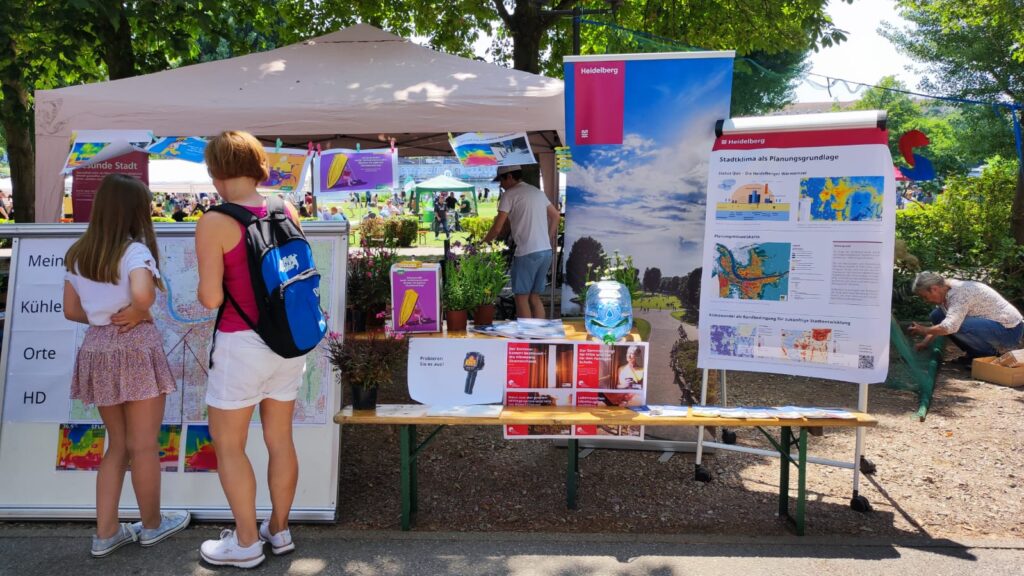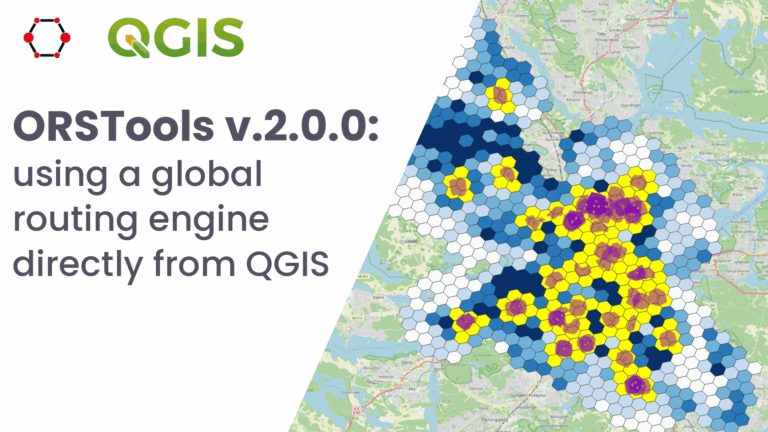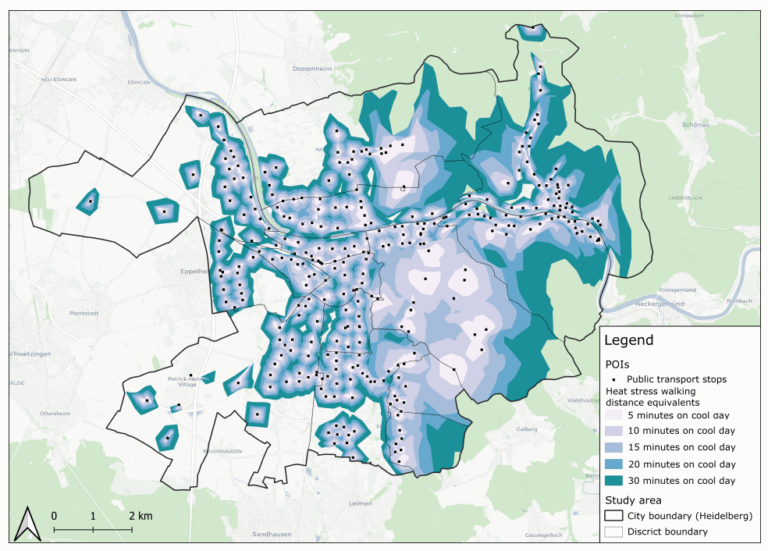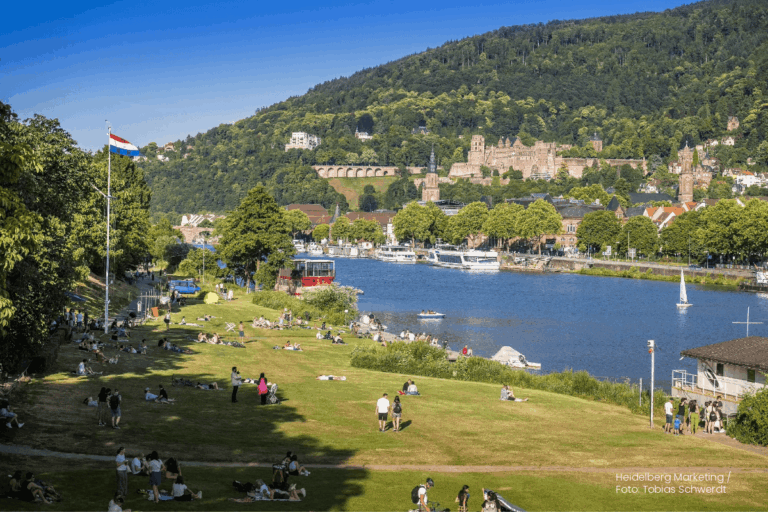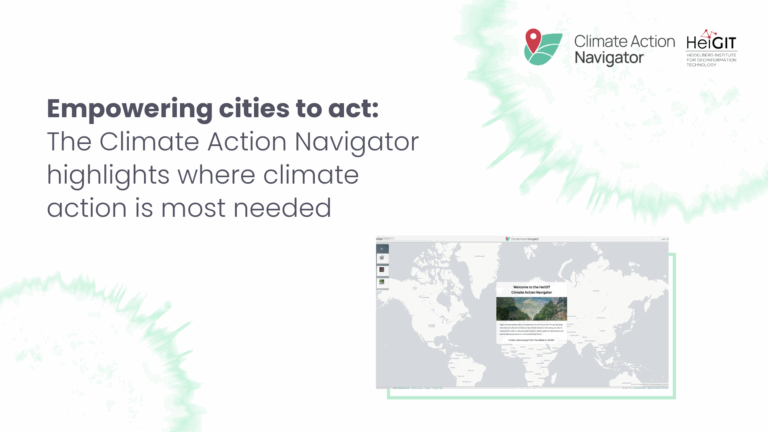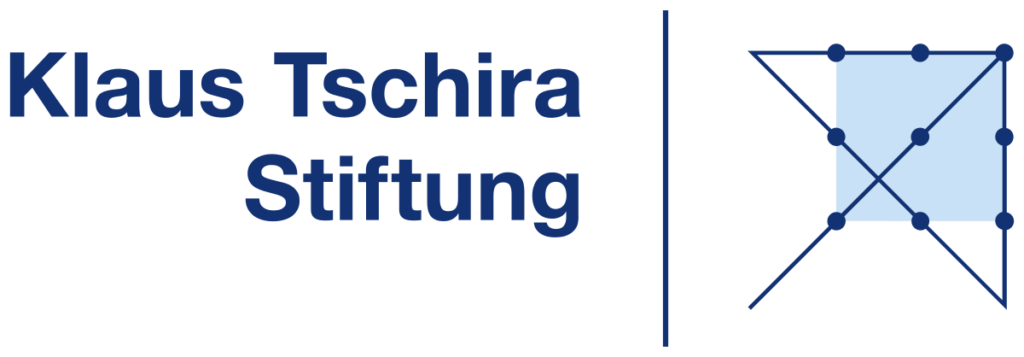The transdisciplinary project HEAL involves citizens in the research process on heat stress in the city: The aim is to make everyday life easier for at-risk groups during heat waves. The Heidelberg Institute for Geoinformation Technology (HeiGIT), supported by the Klaus Tschira Foundation, the TdLab Geography and the GIScience Research Group of Heidelberg University are involved in HEAL.
In recent weeks, temperatures have reached record levels in many parts of the world. Intense and prolonged periods of heat are becoming more frequent and have become a health risk. Especially in cities the high temperatures are becoming more and more dangerous due to sealed surfaces and a lack of green spaces: Circulatory problems, an aggravation of chronic diseases and heat strokes affect particularly the elderly, people with chronic health conditions, small children and pregnant people. They react particularly sensitively to heat and thus belong to the risk groups. In 2022, the Robert Koch Institute recorded heat-related excess mortality, and the forecasts for 2023 look similar. This is where the inter- and transdisciplinary project “Heat Adaptation for Vulnerable Populations”, short: HEAL, comes in: Researchers from HeiGIT, TdLab Geography and the GIScience Research Group at Heidelberg University are investigating heat stress in Heidelberg and identifying the needs of citizens. They are developing a heat stress-avoiding routing app that helps to find the coolest route from A to B in Heidelberg.
HEAL is characterised above all by close cooperation with the target groups: Citizens, especially people from heat-risk groups, are involved in the research process – and not only in scientific surveys and interviews. Within the framework of five interactive walks in the Heidelberg city area, people from at-risk groups had the chance to point out problems and describe concrete challenges directly on site, explain their heat avoidance strategies and show what helps them along the way. In addition, a heat workshop took place in which pupils were sensitised to the health risks of heat and could engage in intensive exchange with each other. In addition to quantitative research, such participatory methods give researchers access to the actual life realities of those affected, which are not visible in quantitative data: How stressful are high temperatures in summer? Are there differences between the various vulnerable groups? Which places in Heidelberg are particular risk areas on hot days? Which digital tools would help to better get through heat days? And how must such applications be designed so that they are also accessible to older people? The researchers found out, for example, that especially Bismarckplatz, the old town and Bergheim as well as green spaces such as the Neckarwiese, where shading is largely lacking, are perceived as heat hotspots.
A screenshot of the prototype of the routing app.
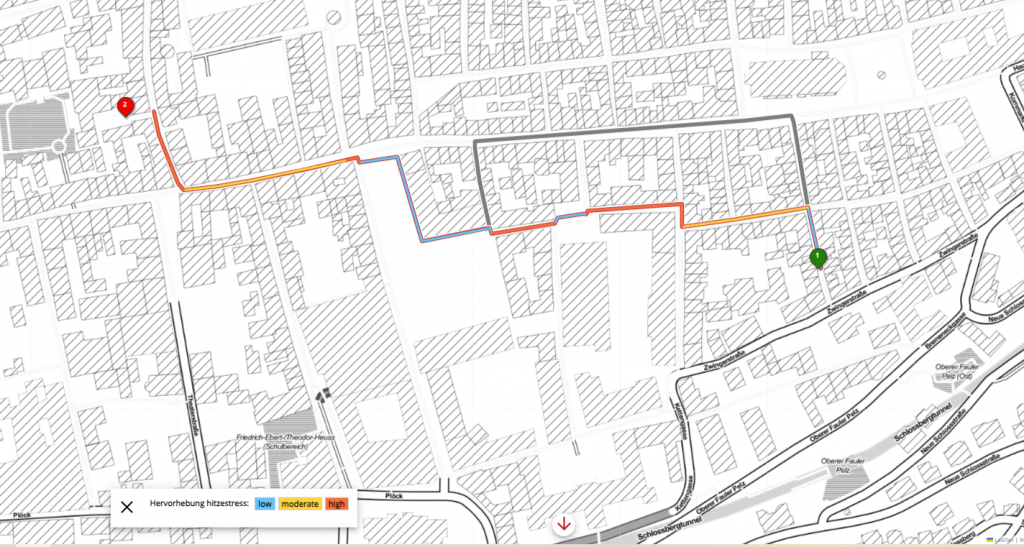
From this close cooperation with affected groups of people as well as local experts, for example from the city administration, the results flow directly into the development of the heat routing app and thus support the activities of the environmental agency within the framework of a “heat health action plan” (German: Hitzeaktionsplan). One measure of this plan is the publication of a “Cool Map”, into which impulses from the HEAL project were also incorporated. The digital interactive map shows cool places in the city – in the sense of area air-conditioned buildings, (drinking) fountains, ice cream parlours and shaded benches. A propotype of the routing app is currently being tested with vulnerable groups of people. The results of the tests and the feedback from the participants will be directly incorporated into the further development of the web-based application. The routing will be completed by the end of the project in May 2024 and will make an important contribution to heat protection in Heidelberg. The HEAL project is funded by the Baden-Württemberg Foundation as part of the research programme “Innovations for Adaptation to Climate Change”.

